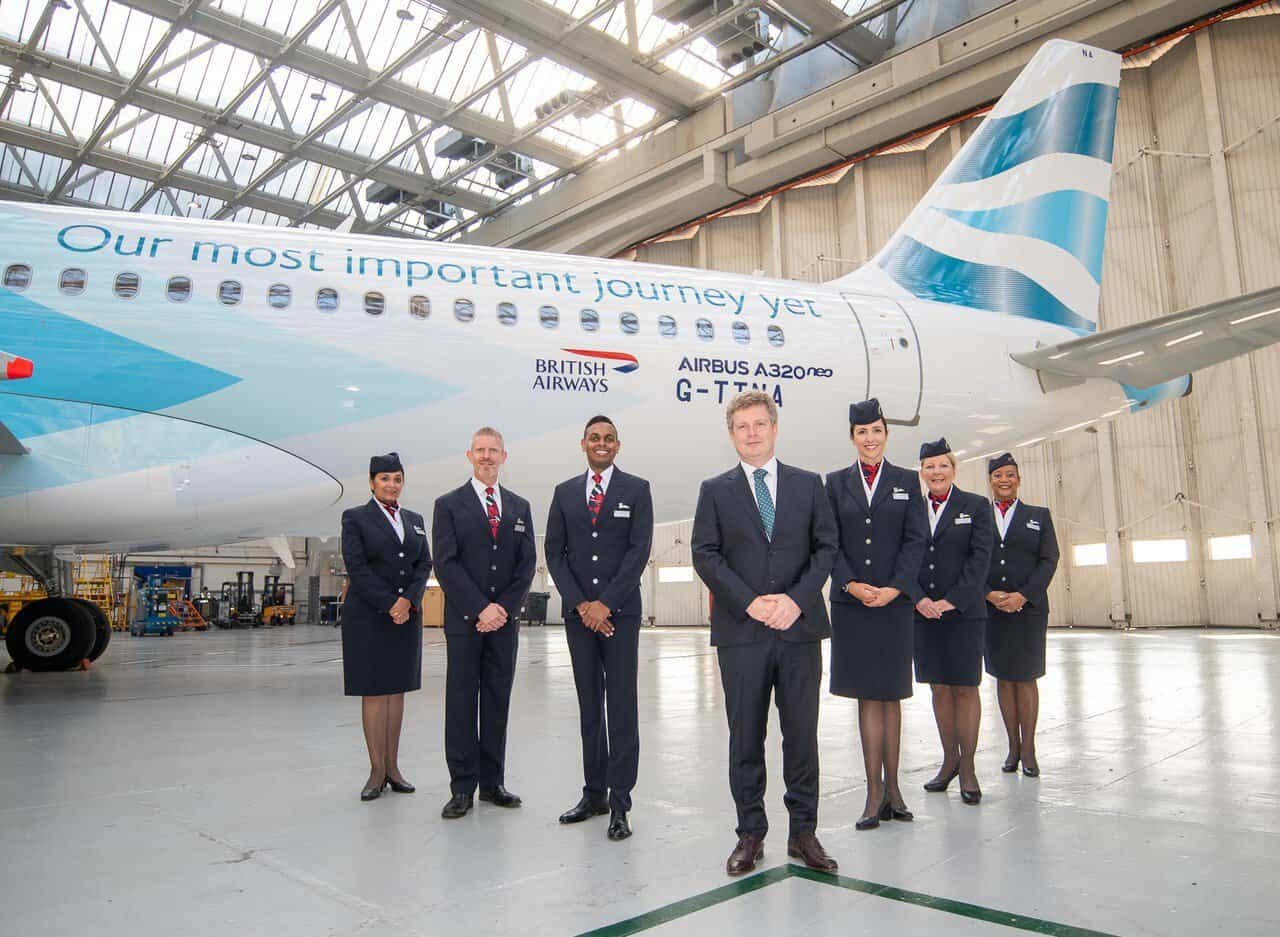For the first time, sustainable aviation fuel (SAF) was used on a British Airways passenger flight.
According to the airline, the flight from London Heathrow to Glasgow on Tuesday also involved air traffic service provider NATS, fuel giant BP, and Airbus.
The short flight on the airlineâs new special liveried sustainability aircraft replicated a British Airways flight to Edinburgh in 2010.
No offsetting or sustainable aviation fuel was available to reduce the flightâs environmental impact at the time, and the flight was operated on an older aircraft with fewer passengers.
Thatâs why this weekâs flight aimed to demonstrate how far the aviation industry has come in its efforts to decarbonise in the last decade.
As part of British Airwaysâ short-haul fleet, the flight was operated by an Airbus A320neo, British Airwaysâ quietest and most fuel-efficient short-haul plane. Aerodynamic, cabin, and flight operations improvements have allowed A320neos to consume 20% less fuel, which means 20% less CO2, and to be 50% quieter than their predecessor, which operated this flight in 2010.
While British Airways hasnât made any major changes since then, theyâve made a number of changes to reduce the weight of their aircraft. Theyâve installed lighter seats on the new aircraft, lighter catering trolleys, and replaced heavy flight manuals with digital downloads.
To comply with technical specifications, sustainable aviation fuel from bp was used in a 35 percent blend with traditional jet fuel to power the flight.
Electric Mototok vehicles, powered by Heathrow Airportâs 100% renewable electricity, were used to push the aircraft back. For taxi, only one of the aircraftâs four engines was used. This reduced the aircraftâs initial thrust almost in half.
The airlineâs chief executive Sean Doyle said: âThis flight offered a practical demonstration of the progress weâre making in our carbon reduction journey.
âBy working together with our industry partners weâve delivered a 62% improvement in emissions reductions compared to a decade ago.
âThis marks real progress in our efforts to decarbonise and shows our determination to continue innovating, working with governments and industry and accelerating the adoption of new low carbon solutions to get us closer still to the perfect flight of the future.â
Last week British Airways launched a sustainability programme named BA Better World, which included a series of initiatives to reach net zero carbon emissions by 2050.

